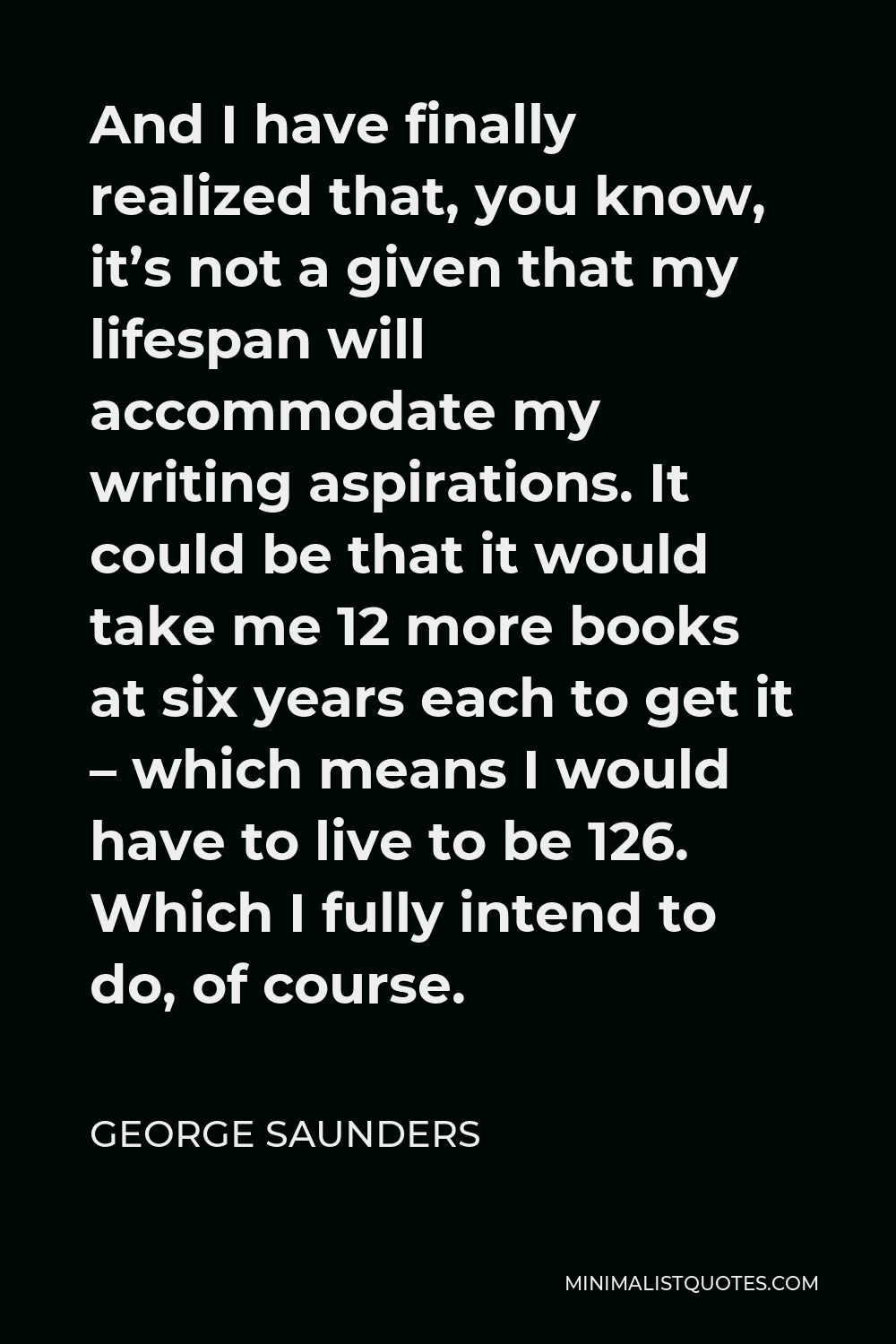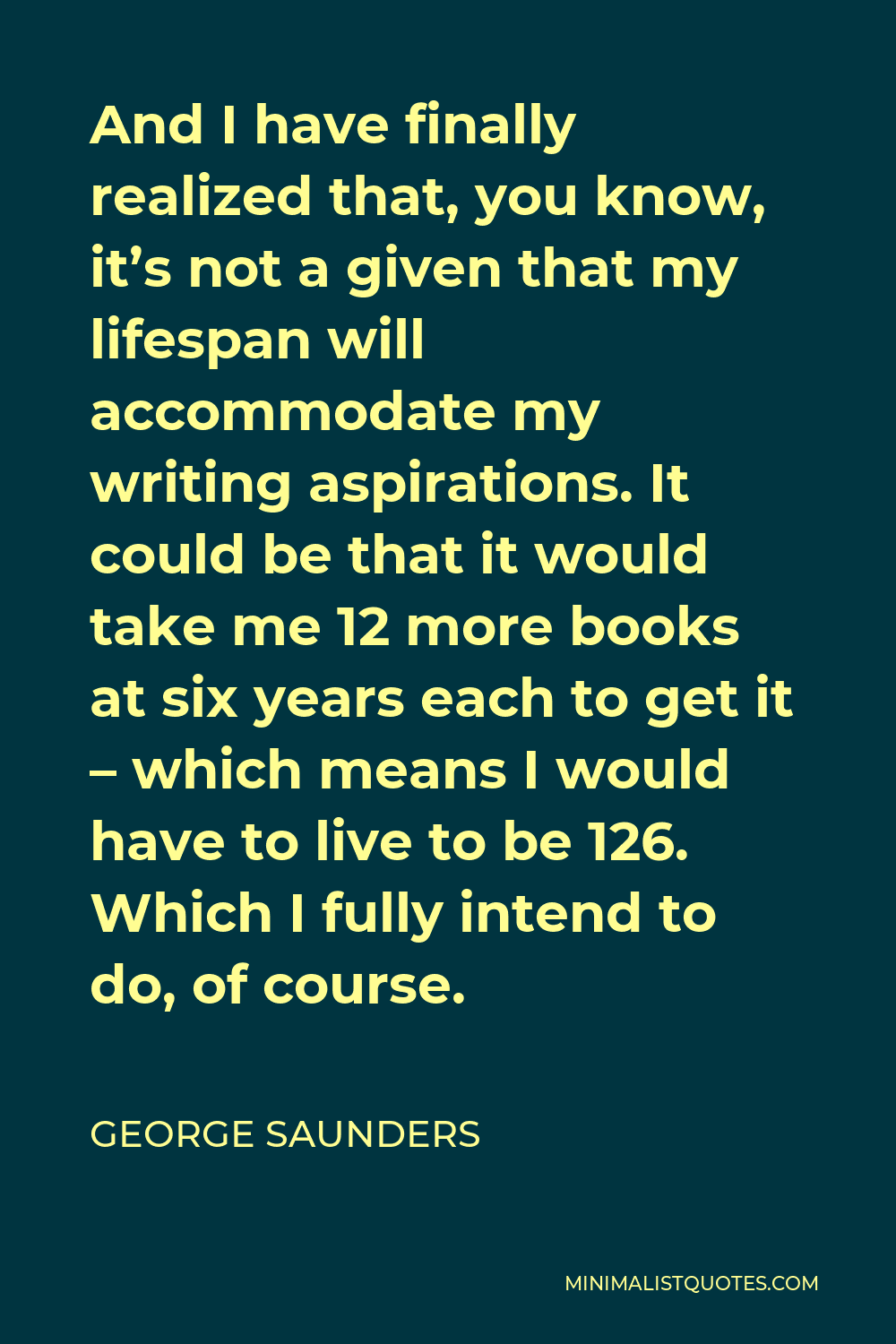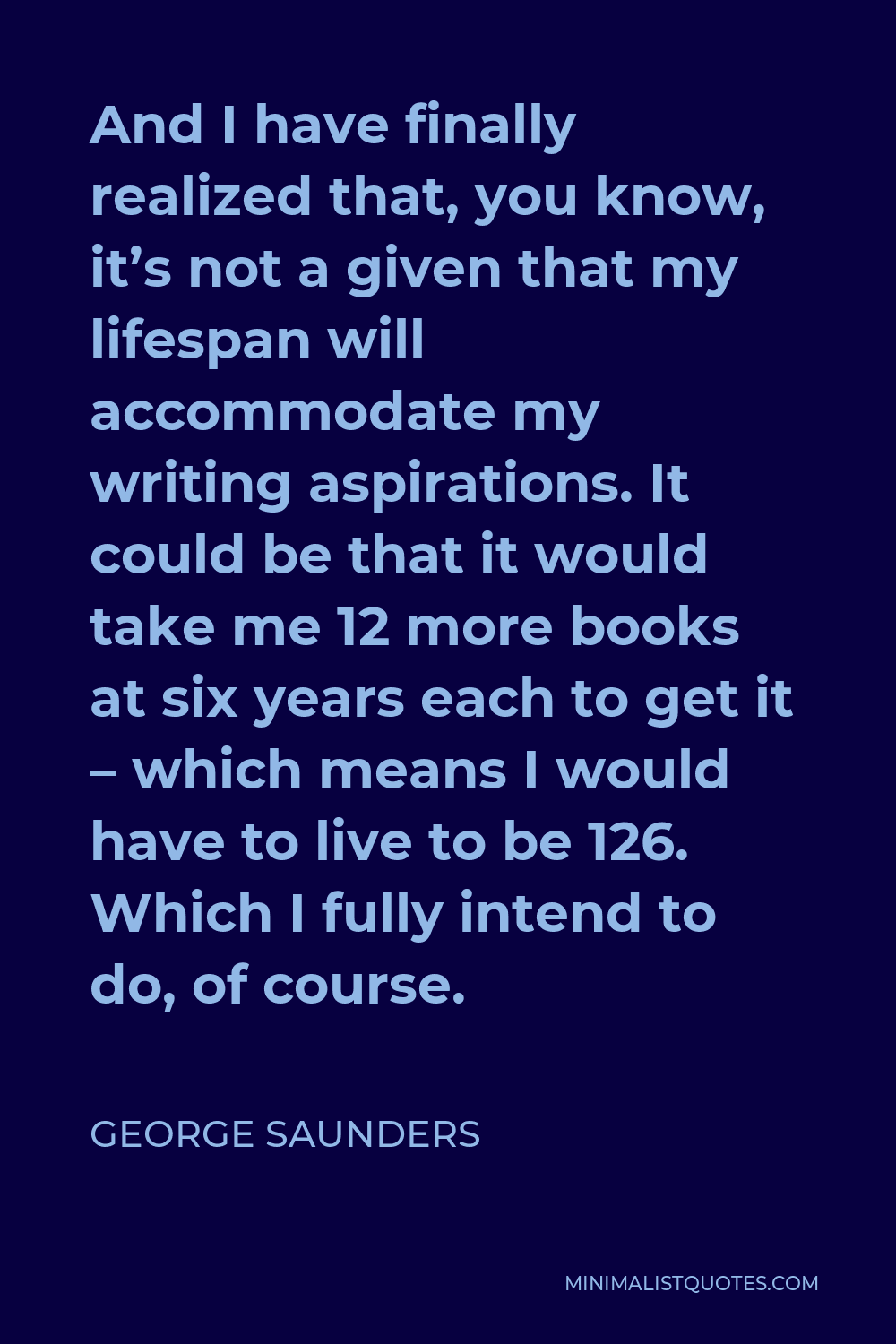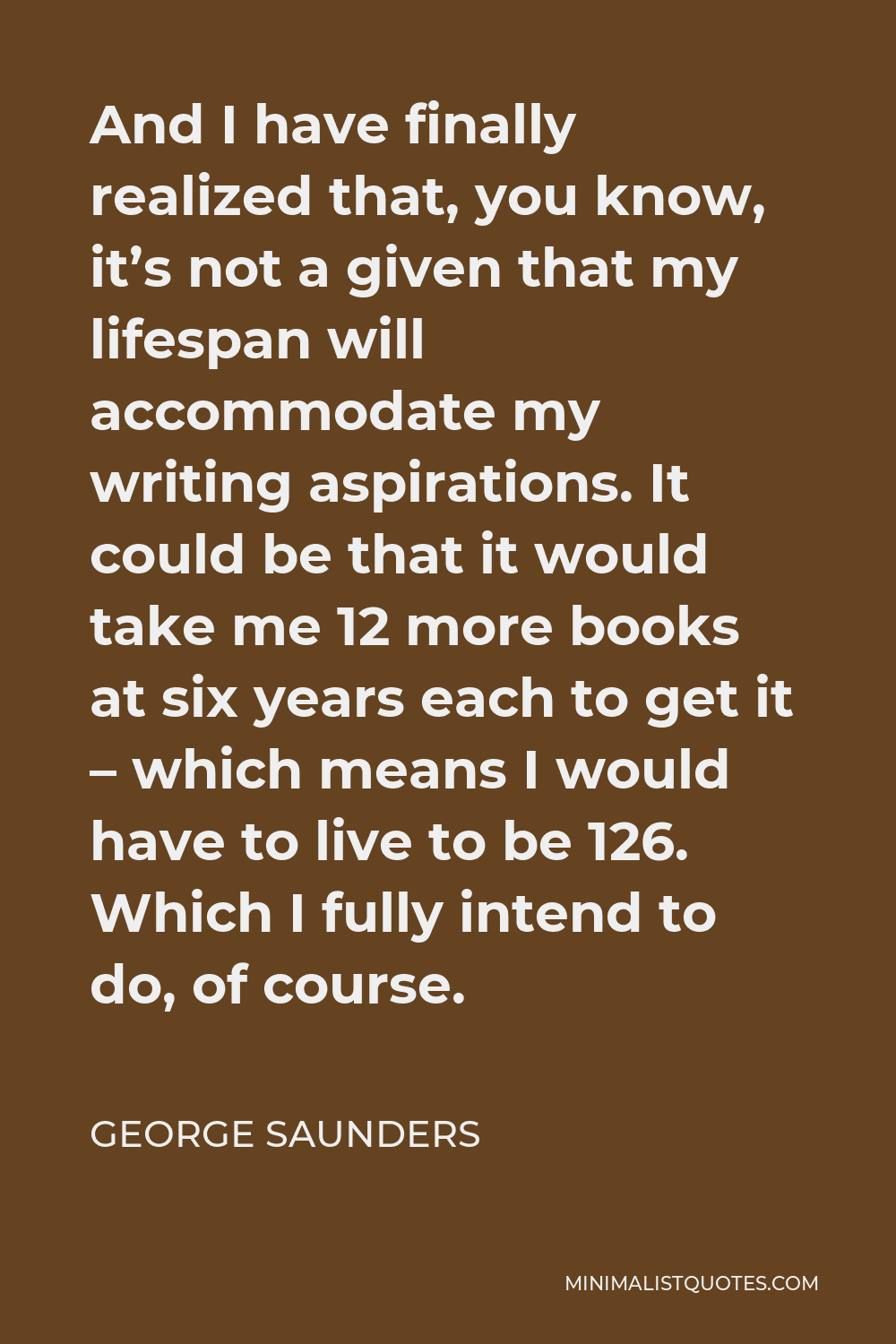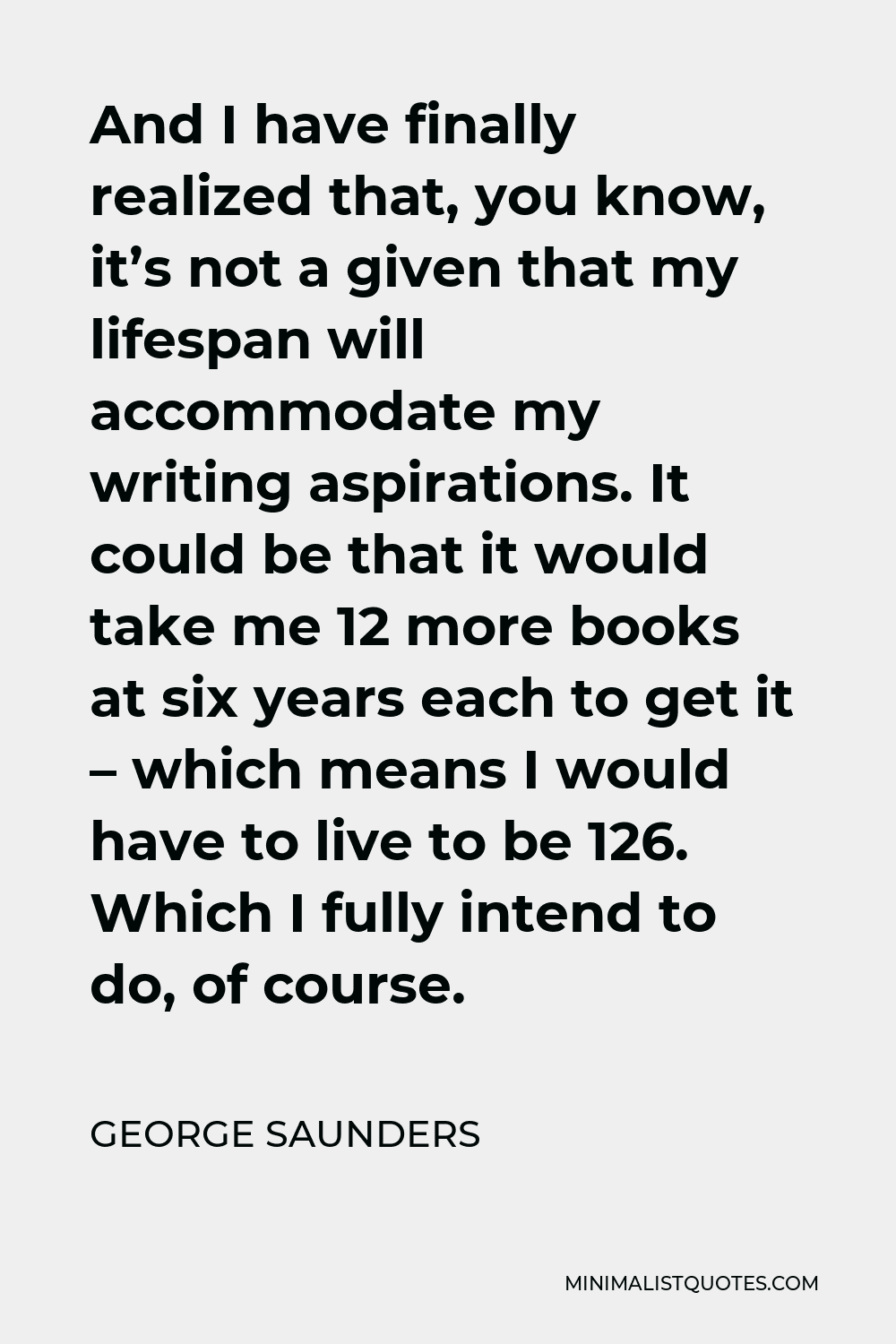Nostalgia is, ‘Hey, remember the other mall that used to be there?’
GEORGE SAUNDERSAnd I have finally realized that, you know, it’s not a given that my lifespan will accommodate my writing aspirations. It could be that it would take me 12 more books at six years each to get it – which means I would have to live to be 126. Which I fully intend to do, of course.
More George Saunders Quotes
-





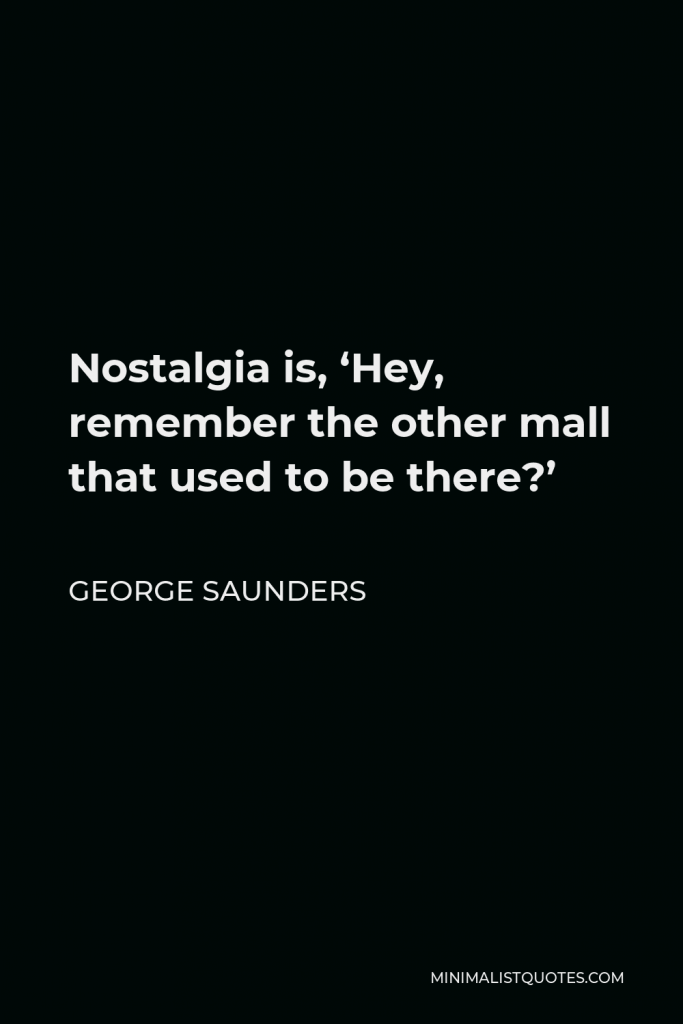

-





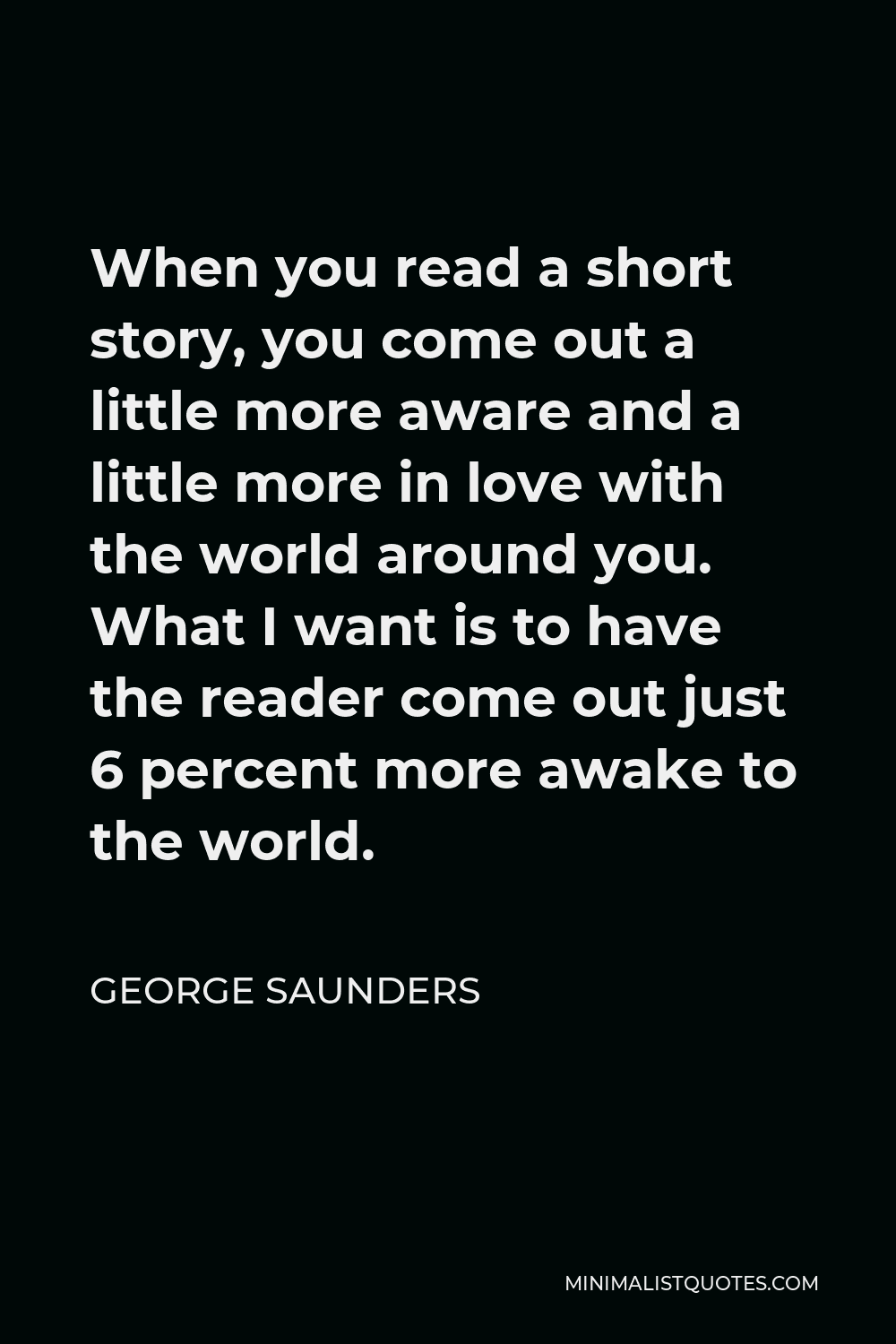
When you read a short story, you come out a little more aware and a little more in love with the world around you. What I want is to have the reader come out just 6 percent more awake to the world.
GEORGE SAUNDERS -





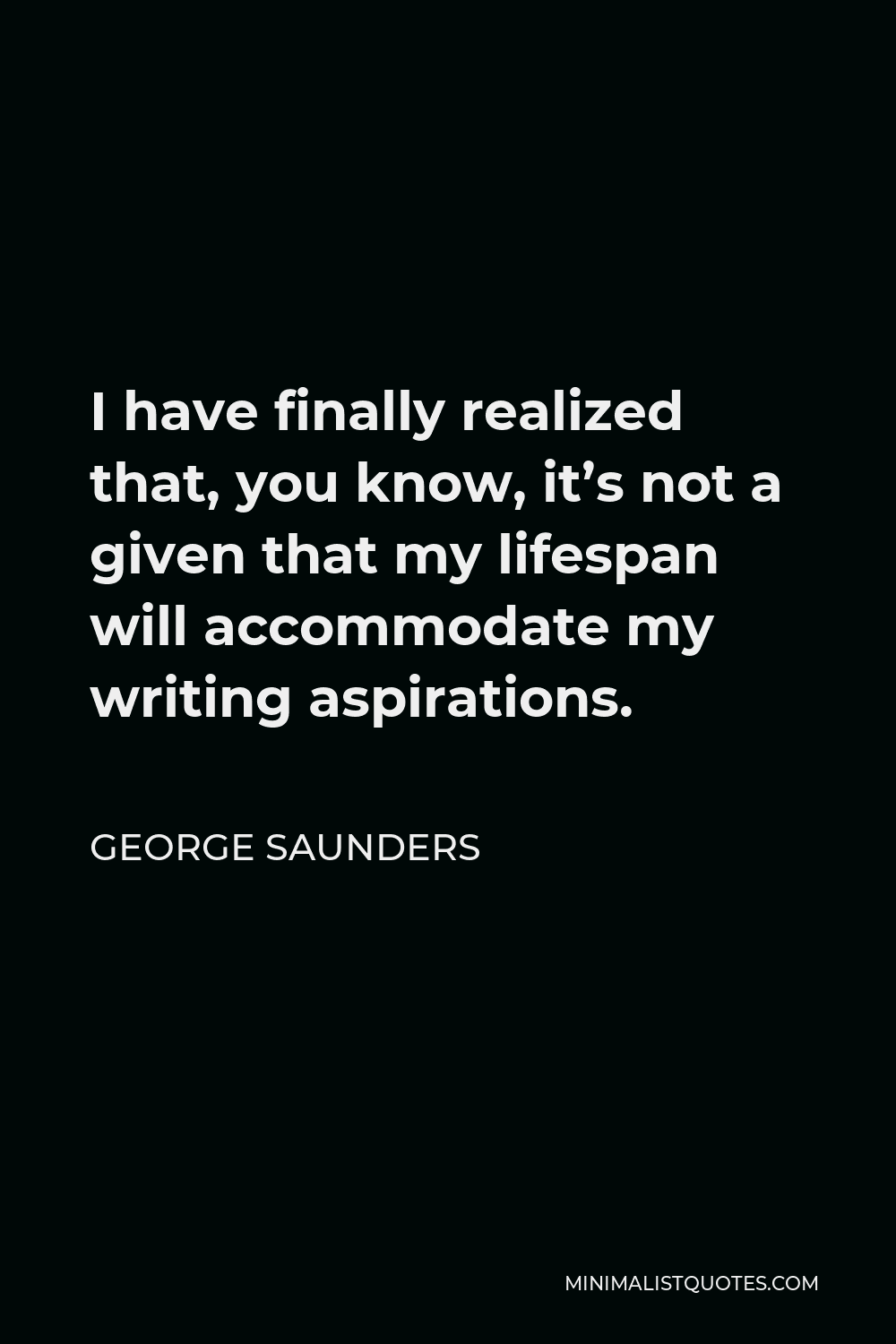
I have finally realized that, you know, it’s not a given that my lifespan will accommodate my writing aspirations.
GEORGE SAUNDERS -





![George Saunders Quote - The book says [Lincoln in the Bardo],”I really need this sci-fi device of a ghost inhabiting another person.” You say okay kind of begrudgingly. So the structure seemed informed by need and efficiency.](https://minimalistquotes.com/images/the-book-says-lincoln-in-the-bardoi-really-need-th.jpg)
The book says [Lincoln in the Bardo],”I really need this sci-fi device of a ghost inhabiting another person.” You say okay kind of begrudgingly. So the structure seemed informed by need and efficiency.
GEORGE SAUNDERS -





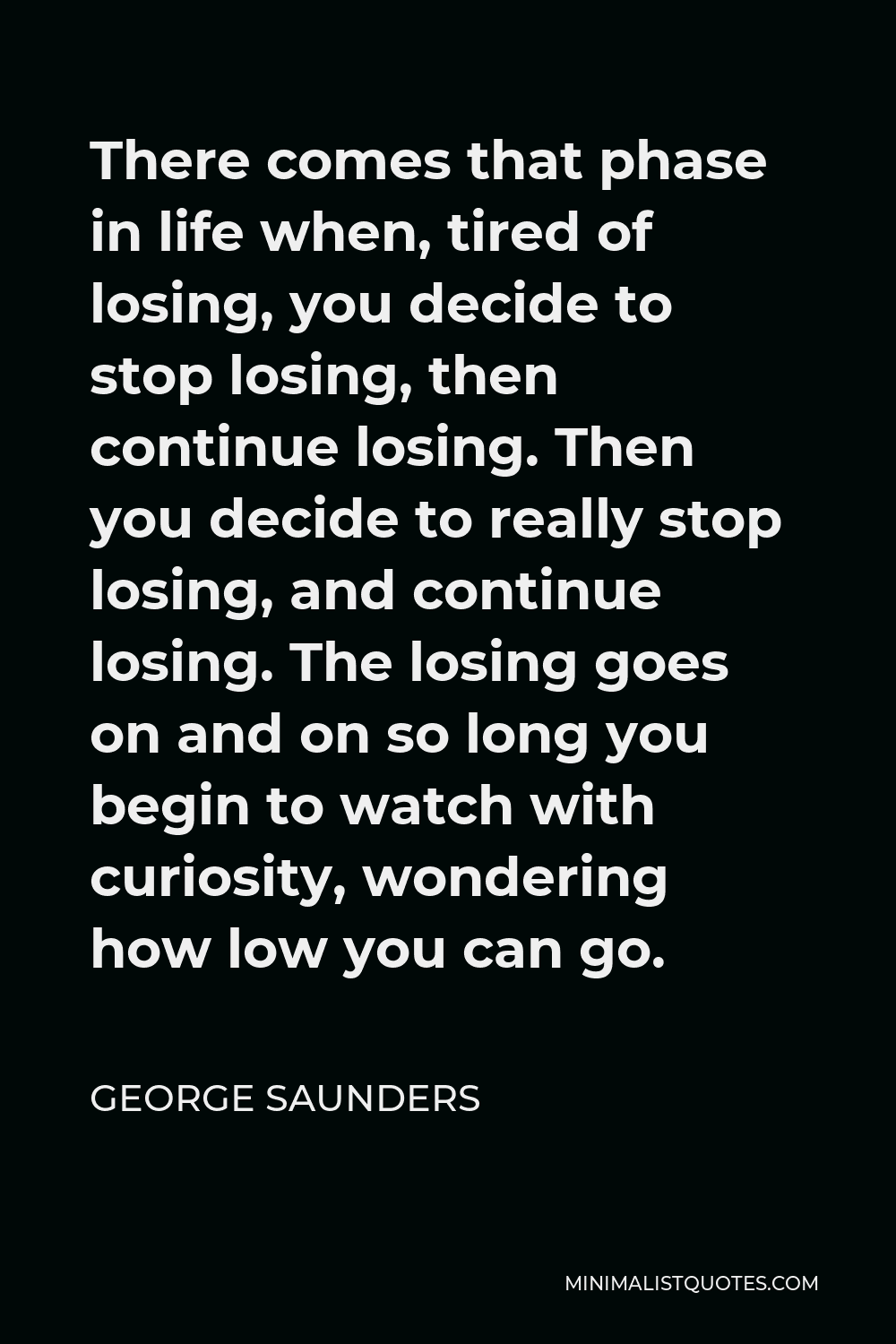
There comes that phase in life when, tired of losing, you decide to stop losing, then continue losing. Then you decide to really stop losing, and continue losing. The losing goes on and on so long you begin to watch with curiosity, wondering how low you can go.
GEORGE SAUNDERS -





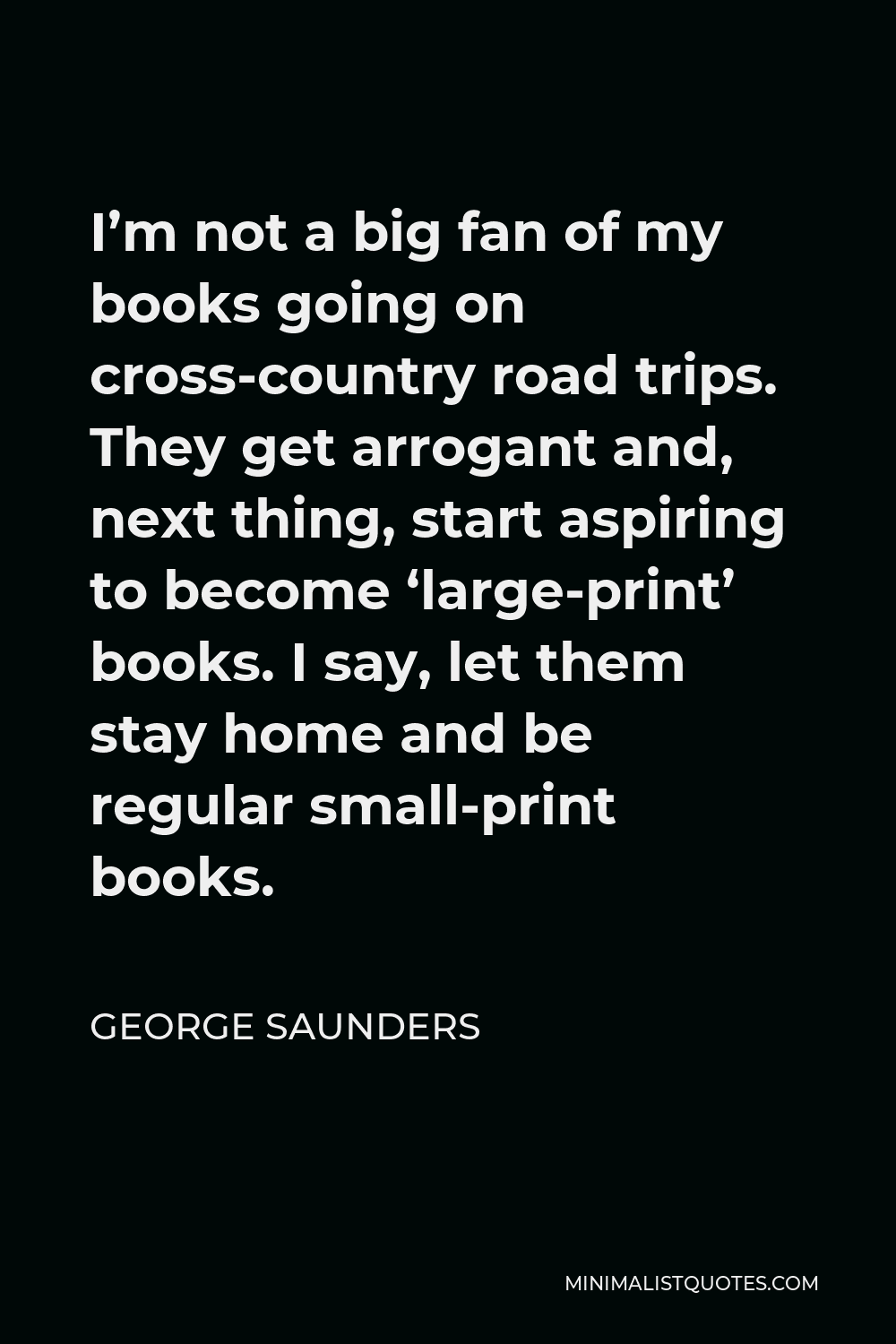
I’m not a big fan of my books going on cross-country road trips. They get arrogant and, next thing, start aspiring to become ‘large-print’ books. I say, let them stay home and be regular small-print books.
GEORGE SAUNDERS -






If you have a friend, what’s the best way you can experience her beauty? It’s to really accept her. She’s weird in this way,
GEORGE SAUNDERS -





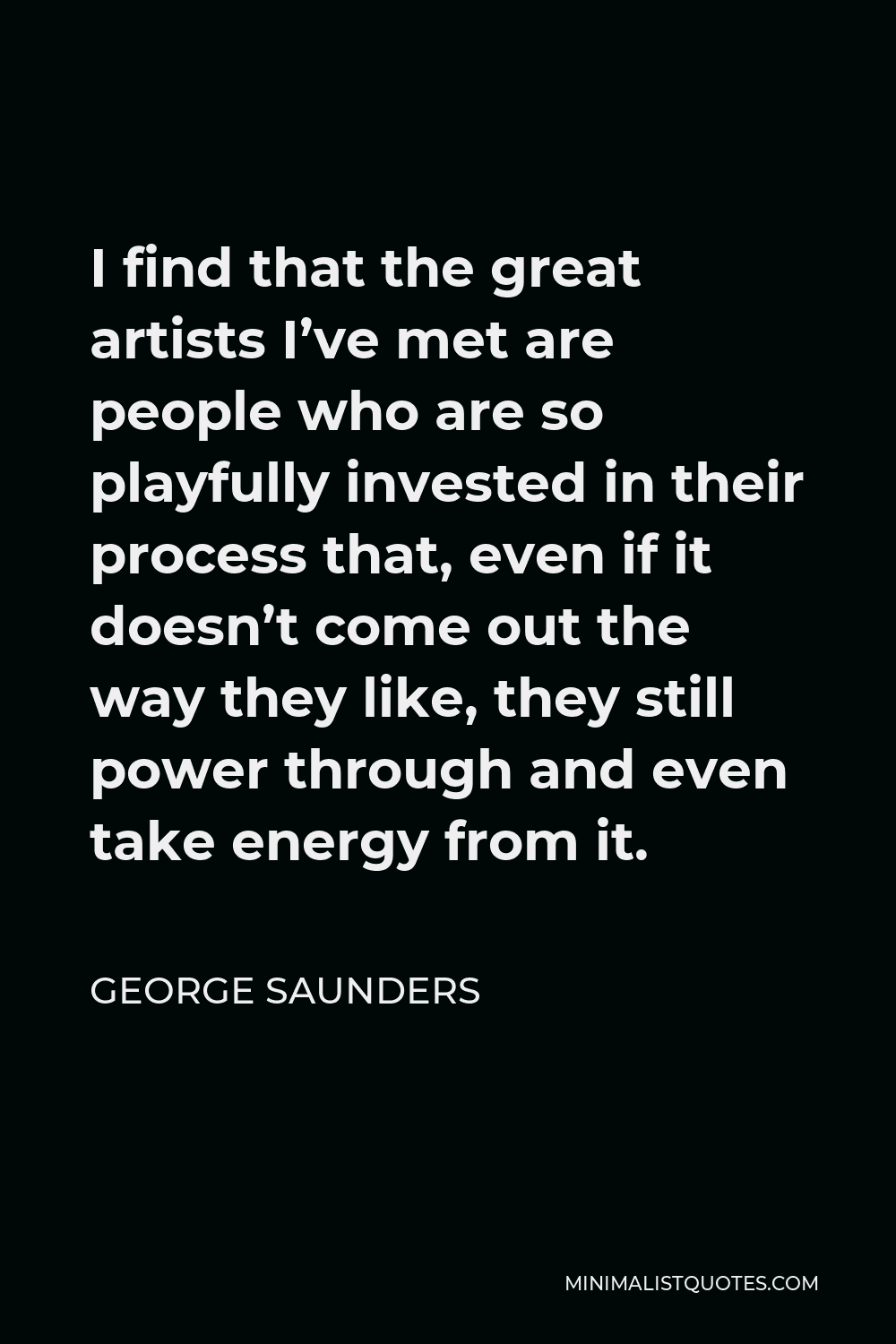
I find that the great artists I’ve met are people who are so playfully invested in their process that, even if it doesn’t come out the way they like, they still power through and even take energy from it.
GEORGE SAUNDERS -






Our first responsibility in all things is to preserve our goodness of heart – then and only then act.
GEORGE SAUNDERS -





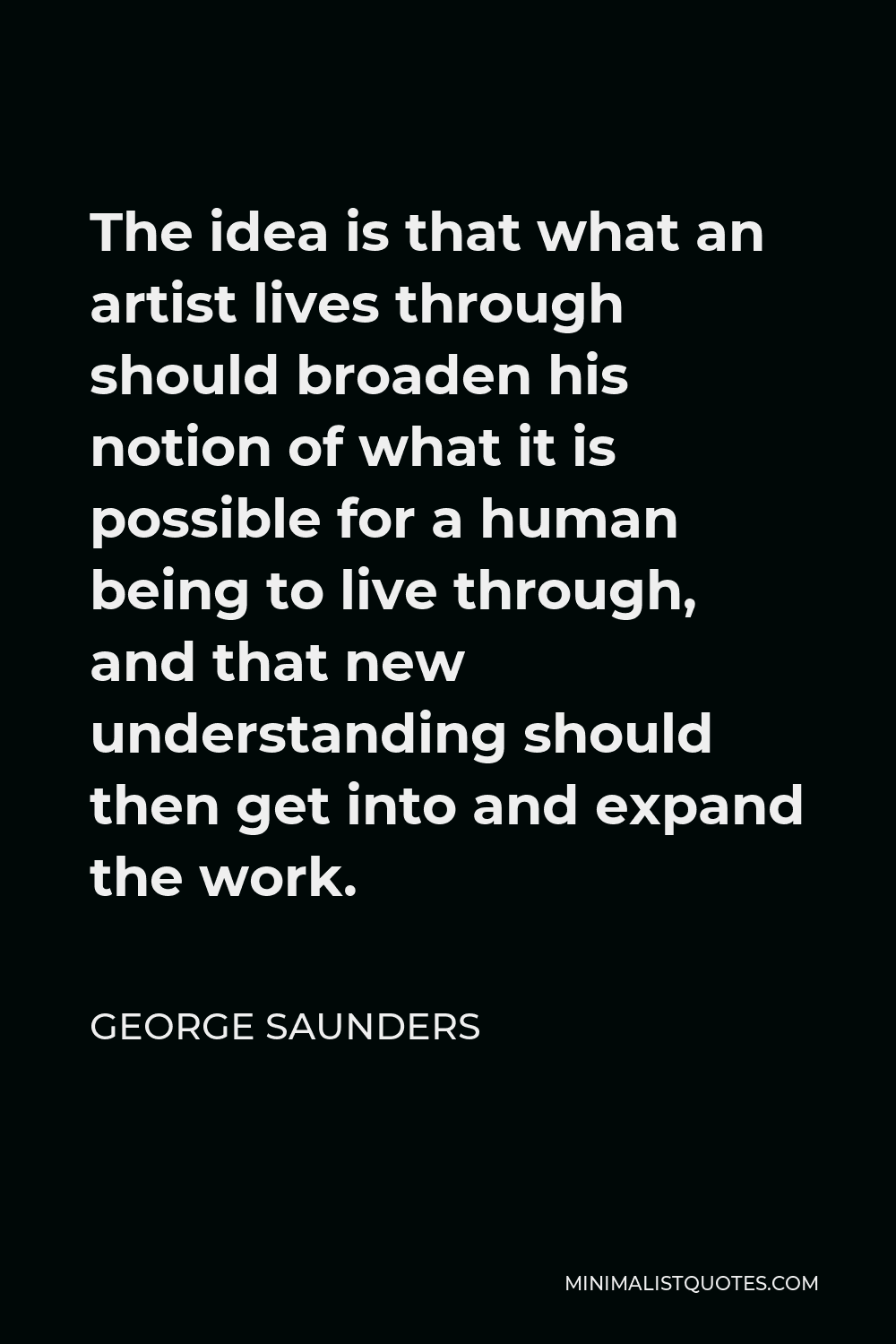
The idea is that what an artist lives through should broaden his notion of what it is possible for a human being to live through, and that new understanding should then get into and expand the work.
GEORGE SAUNDERS -





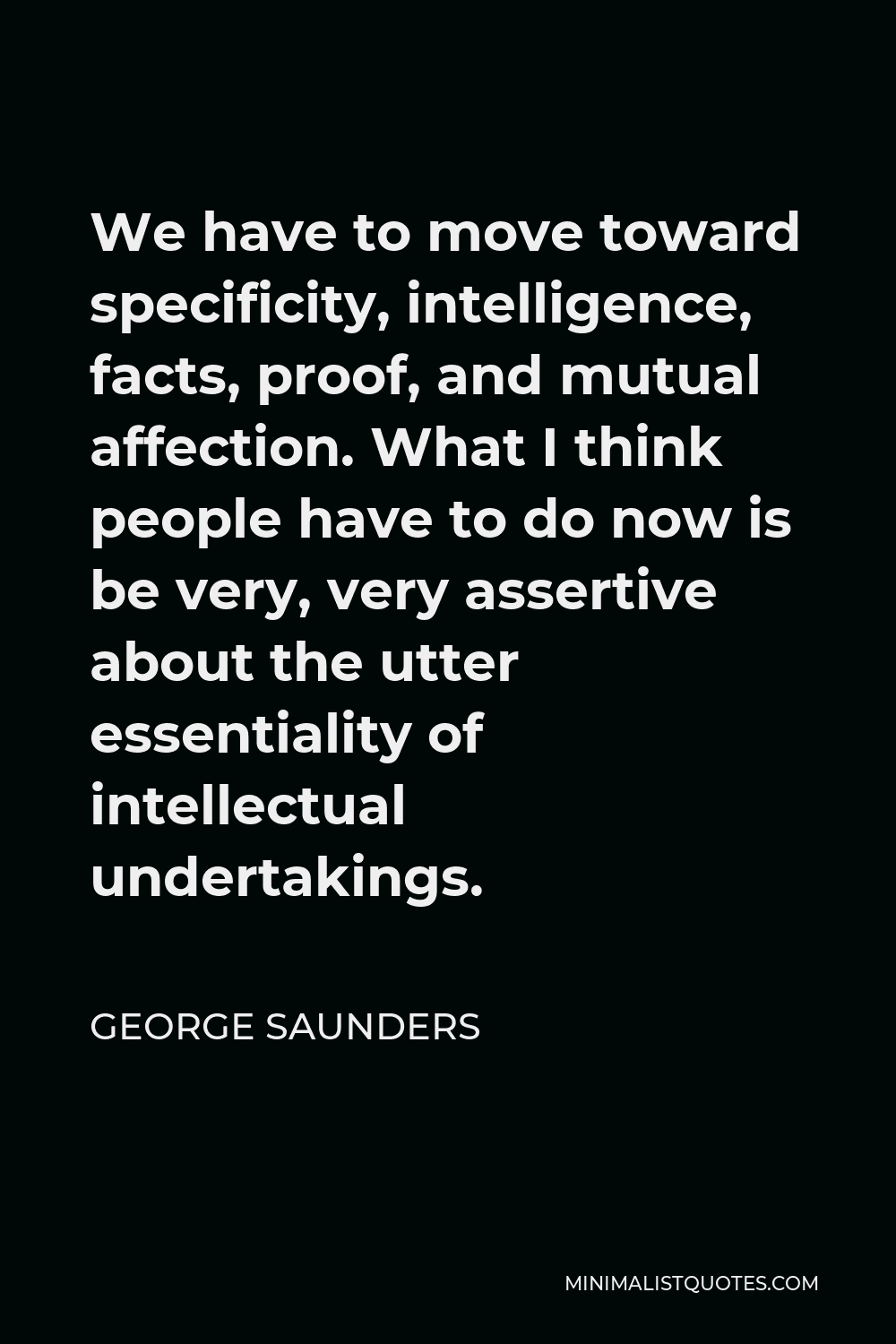
We have to move toward specificity, intelligence, facts, proof, and mutual affection. What I think people have to do now is be very, very assertive about the utter essentiality of intellectual undertakings.
GEORGE SAUNDERS -





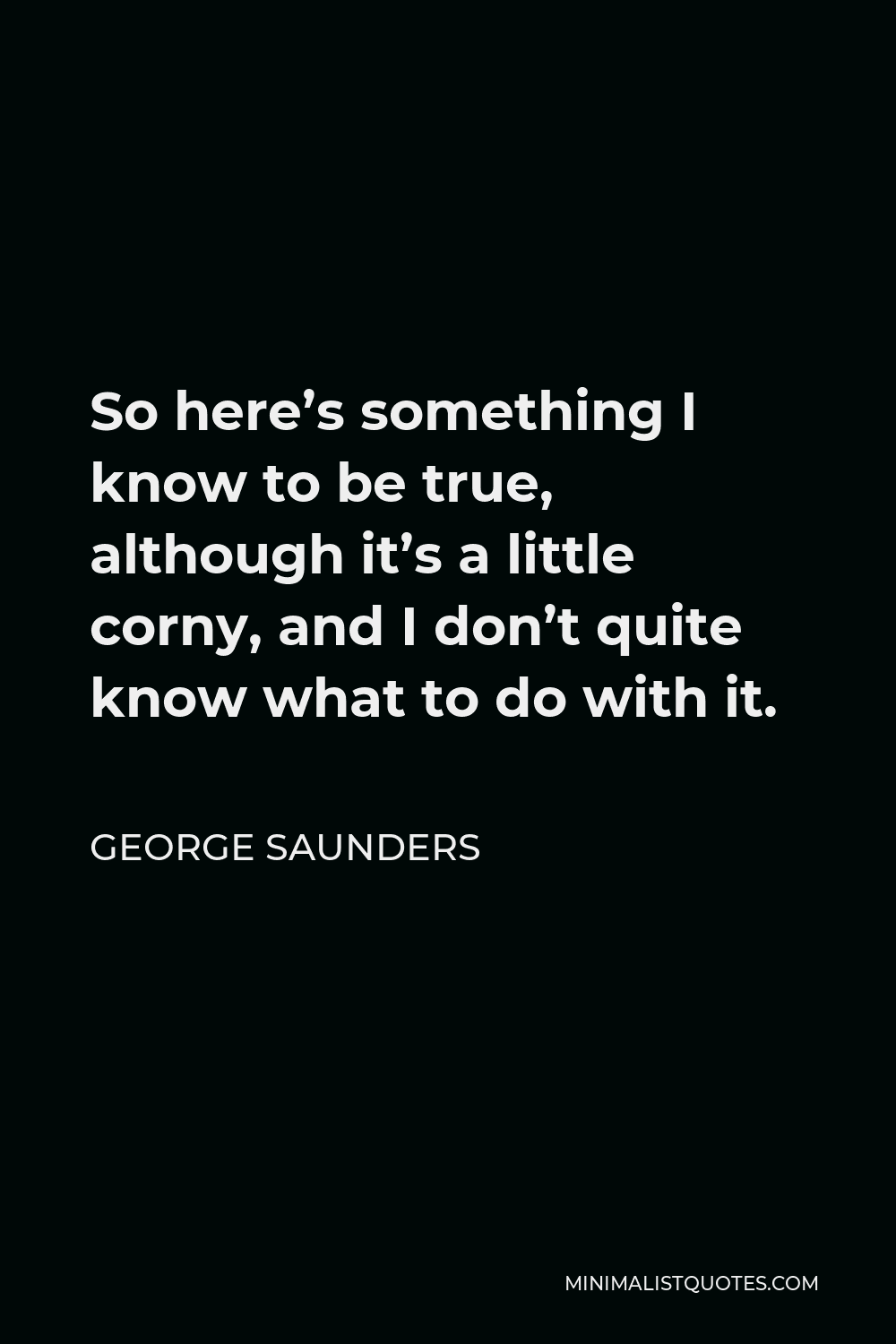
So here’s something I know to be true, although it’s a little corny, and I don’t quite know what to do with it.
GEORGE SAUNDERS -





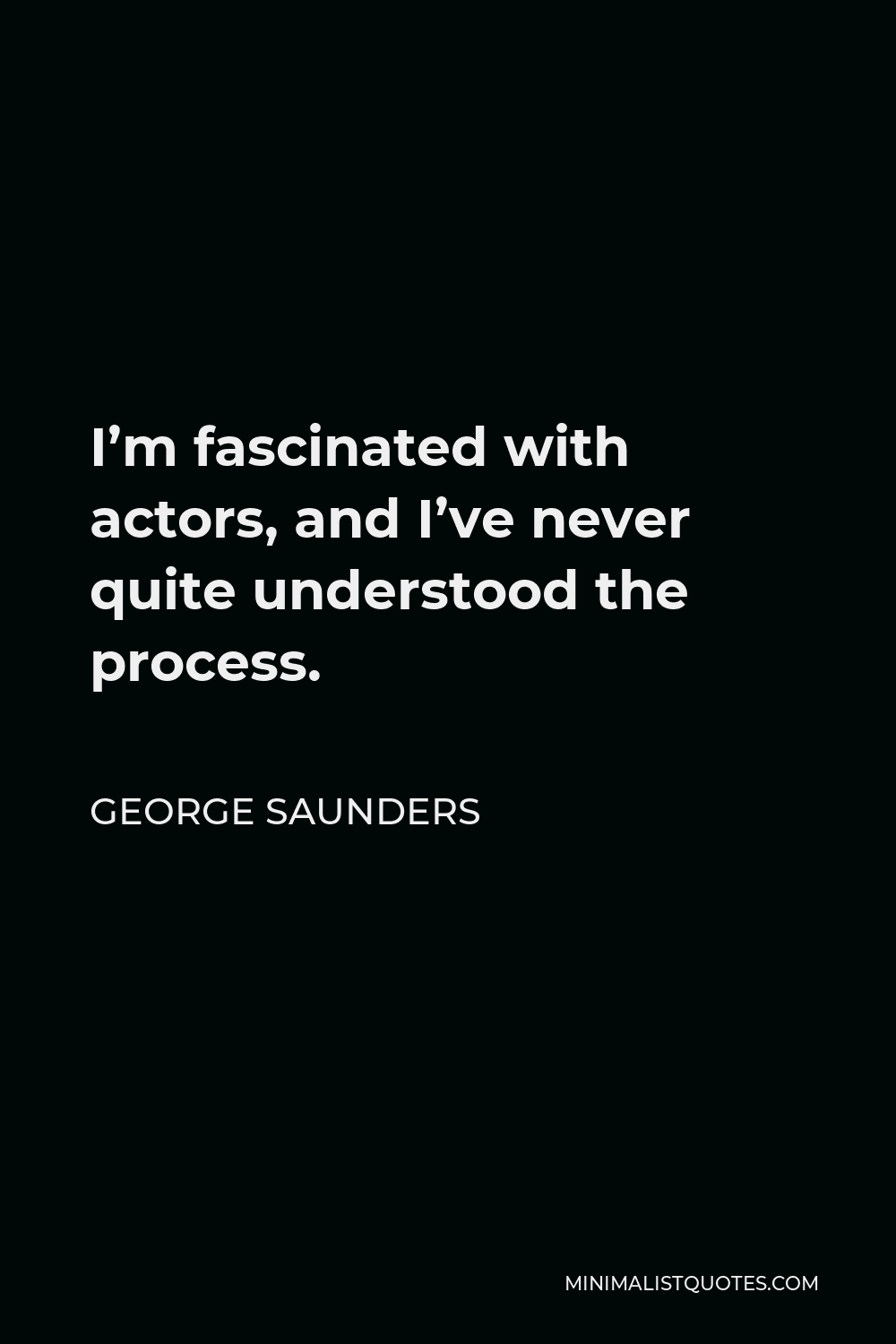
I’m fascinated with actors, and I’ve never quite understood the process.
GEORGE SAUNDERS -





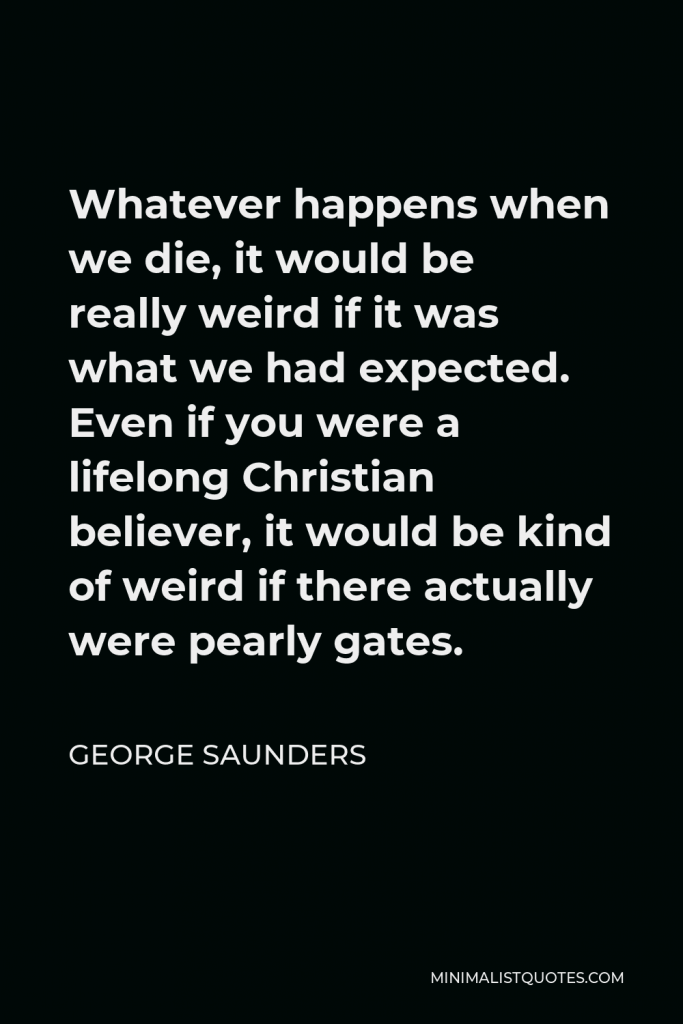

Whatever happens when we die, it would be really weird if it was what we had expected. Even if you were a lifelong Christian believer, it would be kind of weird if there actually were pearly gates.
GEORGE SAUNDERS -





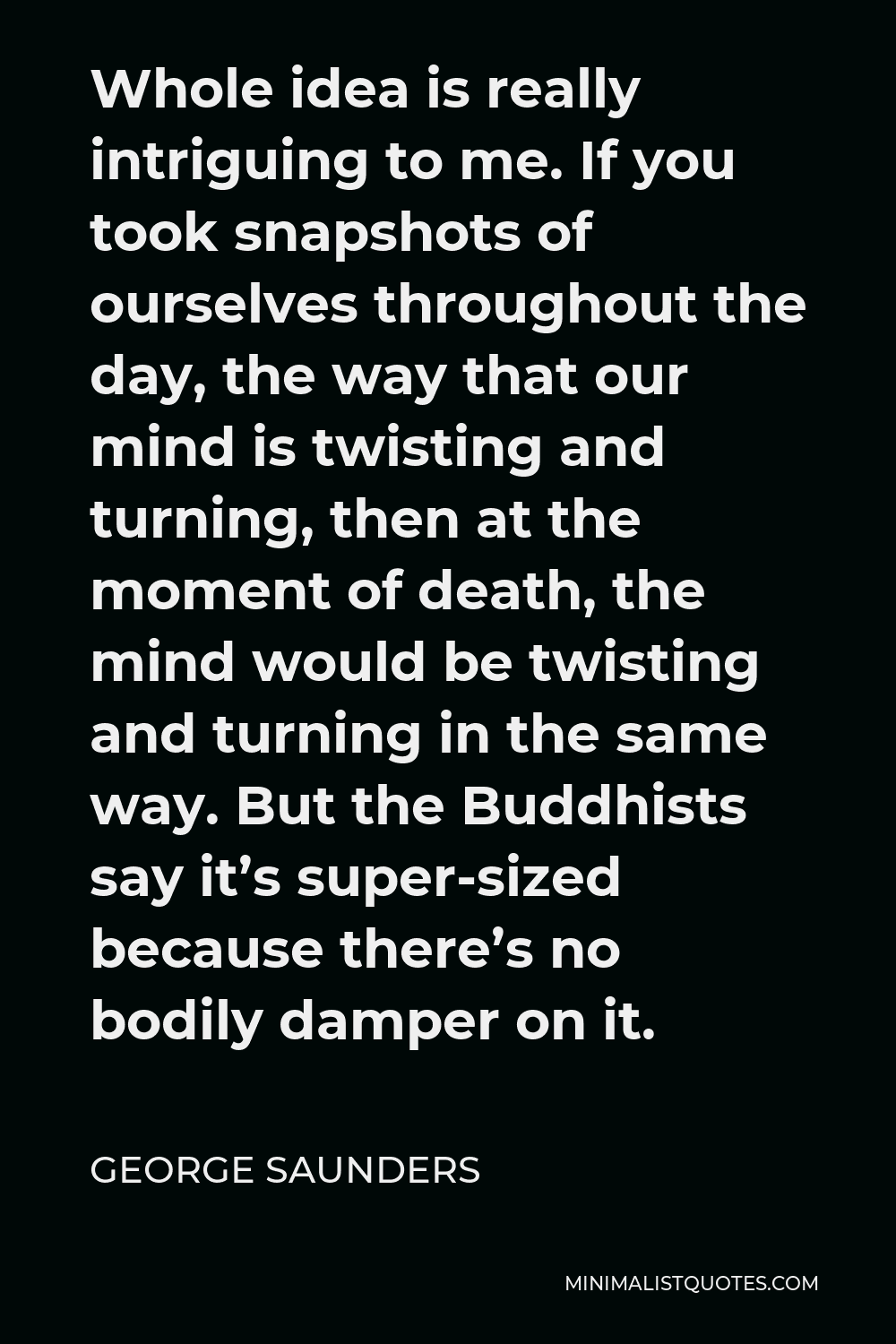
Whole idea is really intriguing to me. If you took snapshots of ourselves throughout the day, the way that our mind is twisting and turning, then at the moment of death, the mind would be twisting and turning in the same way. But the Buddhists say it’s super-sized because there’s no bodily damper on it.
GEORGE SAUNDERS -





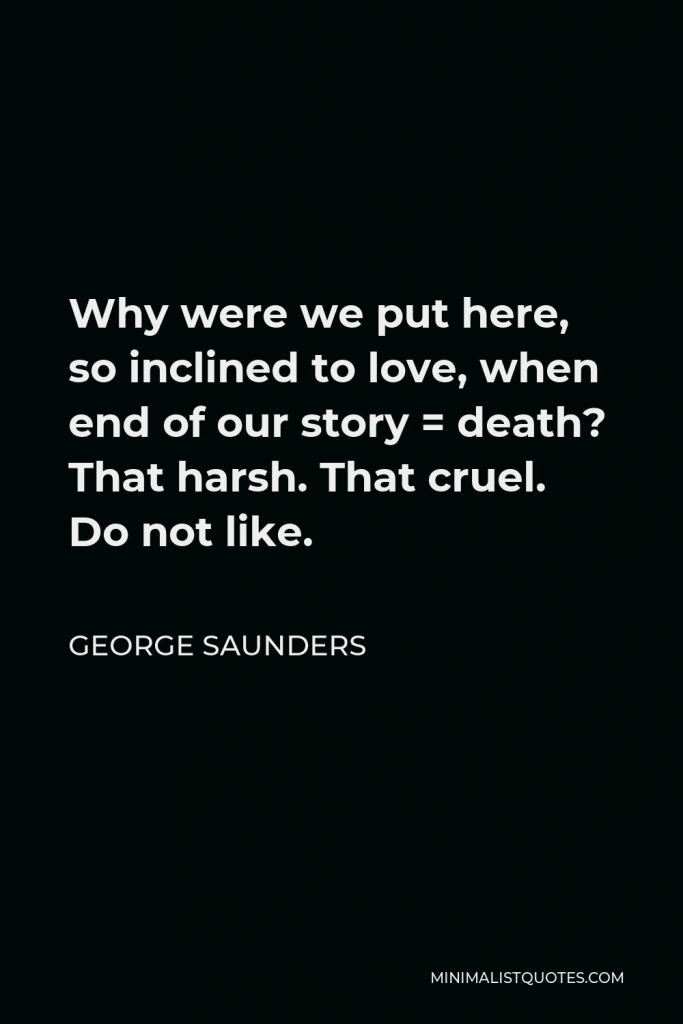

Why were we put here, so inclined to love, when end of our story = death? That harsh. That cruel. Do not like.
GEORGE SAUNDERS
